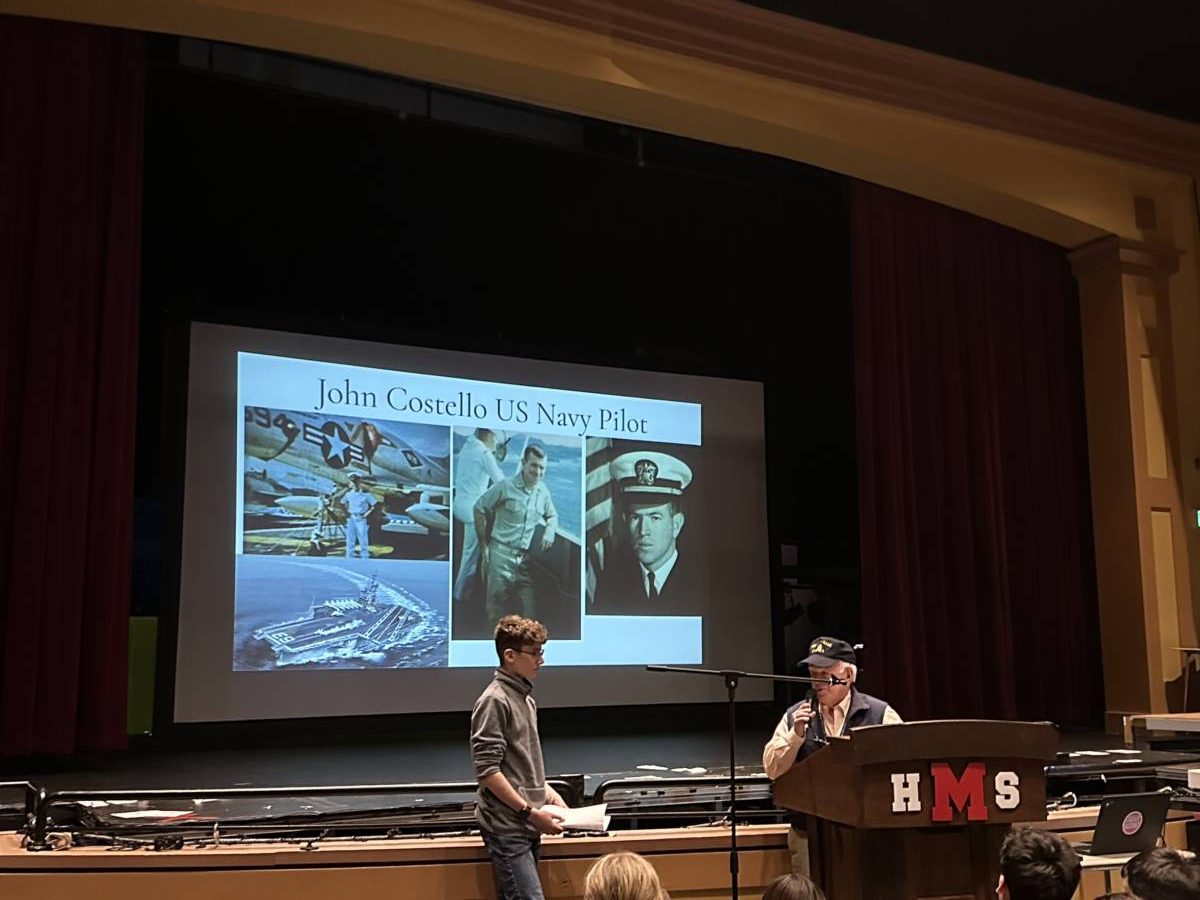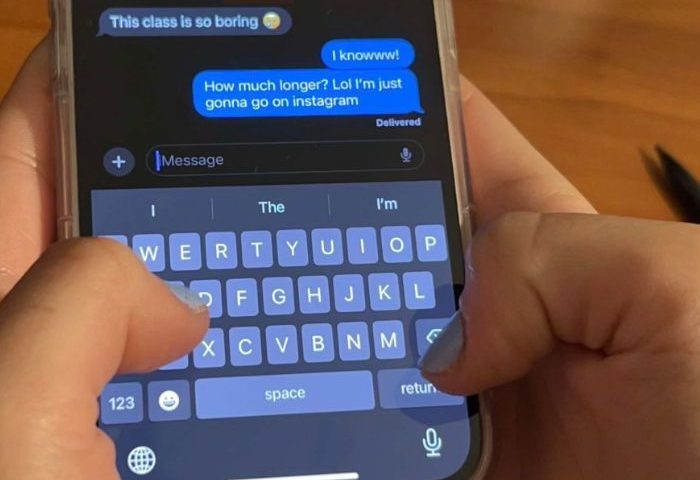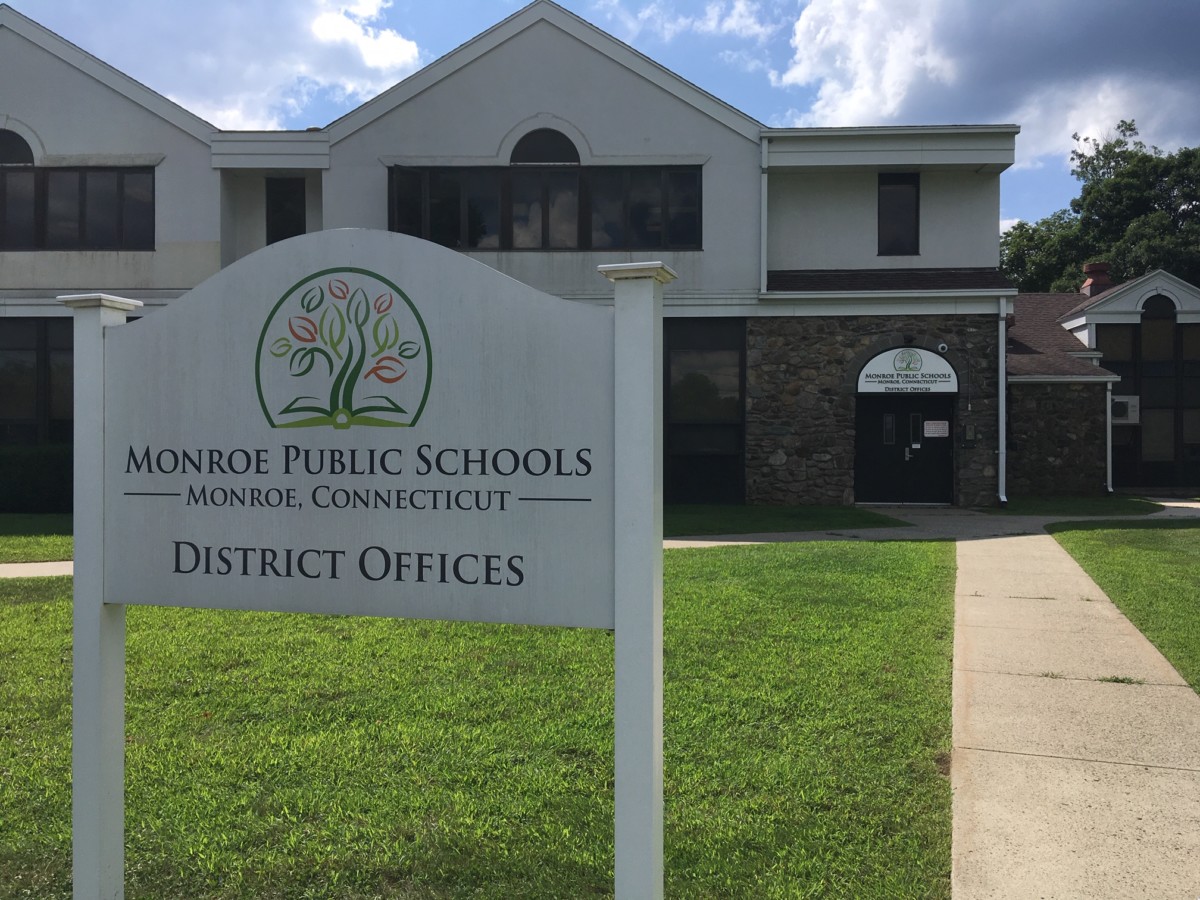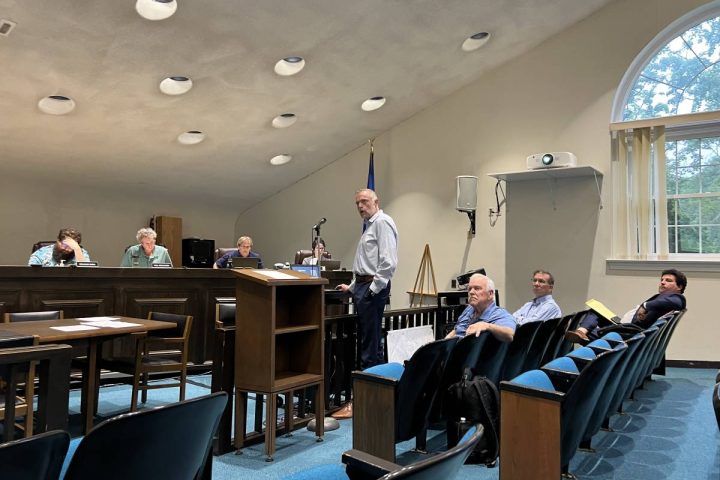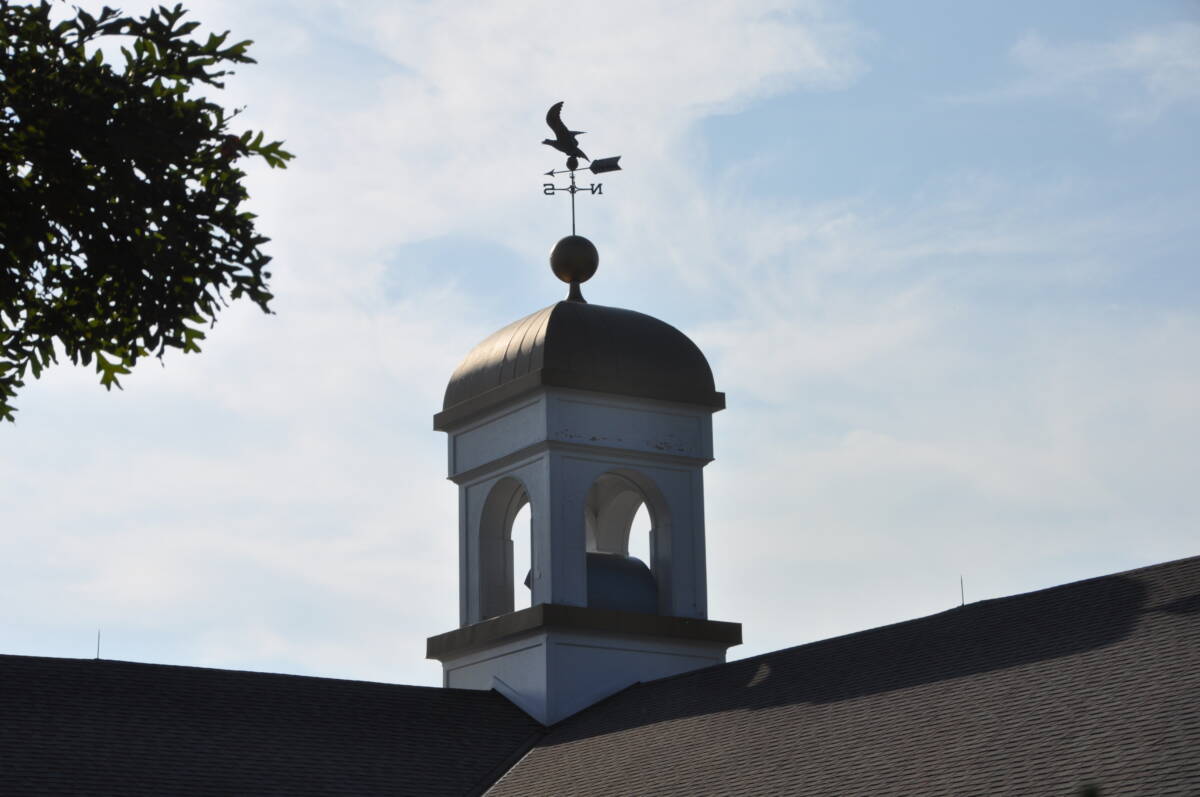MONROE, CT — Jockey Hollow STEM Academy students received a visit from two veterans, a former Navy pilot and an Army musician, on Friday as part of their Veterans Day program.
John Costello, a former U.S. Navy pilot and a Masuk building substitute, went into the jungle in Florida to train for deployment in Vietnam, where he was aboard the Kitty Hawk aircraft carrier.
During his service, Costello flew in and out of Pearl Harbor, passed the Arizona memorial and headed to Japan, where a port in the far east was used to refuel before deployment to the South China Sea, where the Navy would launch attacks against North Vietnam.
“Life on a carrier is interesting,” he said. “On off days the food was great.” Costello said there were lounge areas where Navy members could play chess.
For air operations, they wore a flight suit or a G-suit to prevent blackouts during high speed maneuvers. Costello said he chose to be a pilot because his father and uncle were pilots.
He told students it was difficult to stay in touch with his family, adding he did so by mail and, in Hawaii, a friend in a communication station at Pearl Harbor was able to make calls to upstate New York.
When a student asked if he was scared during the Vietnam War, he said, “all the time.”
Costello said the hardest part of flying was being attentive to everything, though landing on the aircraft carrier was the toughest part. He said his favorite part of serving was landing safely after a mission, which typically lasted two-to-three hours.
Costello said flight school was demanding.
Asked why he chose to join the Navy, Costello said, ” the uniform was better.”
An Army musician
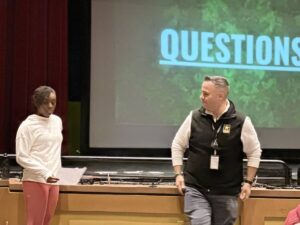
Mark Bilotta, the district’s middle school band teacher, was a sergeant serving in the Army Band, while on active duty for eight years.
He explained the differences between active duty Reserves and the National Guard, and also the fact that military jobs include active fighting, as well as support roles.
“My job was an Army Band musician,” Bilotta said. “We would play concerts and our primary job at any time was to be a soldier, so we went through all of the same training as other Army recruits.”
Basic training was held in Fort Jackson, S.C., for nine weeks.
“Running was the biggest thing for me to get used to,” Bilotta said.
He said 50 to 60 people lived in bay barracks. “Then you go to advanced individual training, where you learn how to do your specific Army job in Norfolk, Va.,” he said.
After his training, Bilotta went to Korea, where he worked with a local orchestra to record a CD.
Then it was onto Fort Riley, Kan., where a tornado hit on the first weekend. Bilotta had a one-year-audition for the Army Band. He played the trombone, the guitar and keyboard.
“One of my favorite events I’ve performed at is the Chicago Memorial Day Parade,” he recalled. “Another favorite memory was playing at Yankee Stadium.”
“I also really enjoyed riding in helicopters,” Bilotta said of his other experiences. “We were on Apaches and Black Hawks.”
A student asked Bilotta why he joined the military.
“Out of college I got a job teaching music at elementary schools and felt like I wasn’t mature enough and saw Army Band as a great option,” he said.
He said the band performed at a lot of ceremonies with some days starting at 4:30 a.m. and running to 2:30 a.m. the next day.
Among the music they played was everything from Taylor Swift and Led Zeppelin to a bugle at military funerals.
When a student asked why he joined the Army, Bilotta said, “the uniform … just kidding. You have to audition. I wanted to be in the Navy, but you have to wait for an opening in your instrument.”
“Some days were really hard work and others were more relaxing,” he said of his experience.
On his days off, Bilotta said he could leave his whole unit. “I would fly home and visit family and friends,” he said.
At the end of the program, Matt Cacace, a STEM social studies teacher and organizer of the event, said, “so now when you see a veteran what do you say?”
All of the students replied, “thank you for your service.”
All respectful comments with the commenter’s first and last name are welcome.

